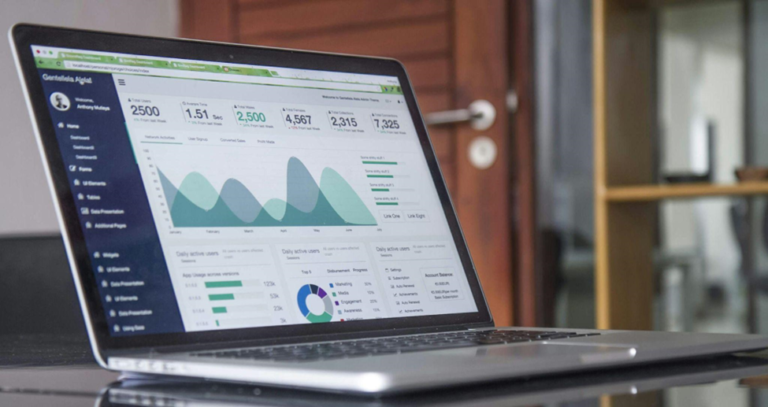Boost Sales & Efficiency with Automotive CRM Software Solutions
Introduction
In today’s competitive U.S. auto market, customers expect fast, personalized service from the moment they show interest, whether online or in-store. Traditional spreadsheets or outdated tools just can’t keep up. That’s where automotive CRM software makes all the difference.
Designed specifically for car dealerships, it helps you track every lead, follow up automatically, and offer a seamless customer experience across all touchpoints. From test drive scheduling to post-sale follow-ups, a good CRM simplifies it all.
If your dealership wants to close more deals, retain more customers, and reduce lead leakage, this guide will show you how to choose and use the right CRM to drive real results.
What is Automotive CRM Software & Why is it Different from Generic CRM Tools
At its core, Automotive CRM software is built specifically for car dealerships, unlike generic CRMs that serve broad industries. While both types manage customer relationships, automotive CRMs are tailored to the unique sales cycles, inventory needs, and buyer behaviors in the U.S. car market.
In a dealership, a customer journey isn’t a one-size-fits-all. You’re not just selling a product, you’re guiding buyers through test drives, trade-ins, financing, service appointments, and more. An automotive CRM understands this flow. It lets you track leads by source, match them to the right vehicle, and follow up with personalized offers all within a single platform.
Unlike generic CRMs, automotive tools integrate with your Dealer Management System (DMS), inventory software, and marketing platforms. They also support features like VIN-specific search, service history tracking, and lead scoring based on buyer intent. This gives your sales team the context they need to convert leads faster and with better precision.
Must-Have Features of Automotive CRM Software for US Dealerships
To stay competitive in the fast-moving U.S. auto market, dealerships need a CRM that’s built for their exact needs, not a generic tool. Here are the must-have features every U.S. car dealership should look for in automotive CRM software:
1. Lead Capture & Auto-Assignment
Automatically collect leads from multiple sources like your website, third-party listing platforms, and social media. Then routes them to the right salesperson instantly to prevent lead leakage.
2. VIN-Specific Inventory Integration
Seamlessly connect your CRM with real-time inventory to match customer interest with available vehicles, helping reps suggest the right car on the first try.
3. Automated Follow-Up Reminders
Schedule timely, personalized follow-ups via email, text, or phone so no prospect falls through the cracks even during peak hours.
4. Service & Trade-In History Tracking
Access each customer’s past service records or trade-ins to tailor conversations and build long-term relationships that go beyond a single sale.
5. Smart Reporting & Sales Dashboards
Get real-time insights into lead performance, rep activity, and closing rates so dealership managers can make data-driven decisions daily.
6. DMS & Marketing Tool Integration
Connect with your existing Dealer Management System and digital marketing platforms to streamline operations and create a unified customer experience.
How Automotive CRM Software Improves US Dealership Performance
In today’s competitive U.S. auto retail landscape, efficiency and personalization can make or break a sale. Car dealership CRM software is no longer a luxury, it’s a growth engine. Here’s how it drives performance across U.S. dealerships:
1. Boosts Lead-to-Sale Conversion Rates
Dealerships using automotive-specific CRM tools have seen up to a 30% increase in conversion rates. That’s because these systems help prioritize high-intent buyers, ensure timely follow-ups, and keep sales teams organized.
2. Reduces Response Time
According to industry research, 78% of car buyers purchase from the dealership that responds first. CRM software sends instant notifications and automates responses to make sure you never miss the window of opportunity.
3. Improves Customer Retention
With service reminders, loyalty campaigns, and personalized messaging, the automotive CRM software helps U.S. dealers increase repeat visits. Studies show that returning customers are 50% more likely to buy again and often spend more on services.
4. Increases Team Productivity
CRM tools eliminate manual tasks like data entry, lead tracking, and appointment reminders. This allows sales teams to spend more time selling and less time organizing, leading to up to 20% more daily customer engagements.
5. Enables Smarter Inventory Management
By connecting with your inventory system, the CRM can suggest vehicles based on buyer preferences, age of stock, or seasonal demand, helping you move units faster.
Challenges US Car Dealerships face without a Dedicated CRM
Running a dealership without a purpose-built automotive CRM software is like trying to race with one flat tire; you’re working hard, but you’re not going far. Here are six major challenges U.S. dealerships commonly face without the right CRM in place:
1. Missed Leads and Poor Follow-Ups
Without automated lead tracking, many dealerships lose potential buyers due to delayed or forgotten follow-ups. Every minute counts, especially when a buyer is contacting multiple dealerships online.
2. Scattered Customer Information
Generic systems or spreadsheets make it hard to access complete customer profiles. Without centralized data, your team struggles to personalize communication or understand buying intent.
3. Manual and Time-Consuming Processes
From appointment scheduling to service reminders, doing everything manually drains productivity. Your sales team ends up spending more time on admin tasks than with customers.
4. Inconsistent Customer Experience
Without a CRM, it’s difficult to standardize communication. Some customers may get emails, others get calls, and some might fall through the cracks entirely, hurting your brand and trust.
5. Limited Sales and Marketing Insights
Dealerships without CRMs often lack visibility into sales performance, lead sources, and marketing ROI. This makes it nearly impossible to optimize campaigns or coach the sales team effectively.
6. Low Retention and Repeat Business
When there’s no system to track past purchases, service history, or customer preferences, dealers miss chances to reconnect with previous buyers. However, this costs them future revenue and loyalty.
How to Choose the Right Automotive CRM for Your US Dealership
Choosing the right CRM can make or break your dealership’s sales performance. Here’s how to pick a solution that’s built for your business and helps you drive more revenue:
1. Look for Automotive-Specific Features
Don’t settle for a generic CRM. Your dealership needs tools designed for the auto industry, like inventory syncing, DMS integration, test-drive scheduling, and service appointment management. These features streamline operations and deliver a better customer experience.
2. Prioritize Ease of Use
If your sales team finds the CRM confusing or clunky, they won’t use it—simple as that. Choose a user-friendly system with intuitive navigation and clear workflows so your team can hit the ground running.
3. Ensure Mobile Accessibility
Today’s car buyers move fast, and your team needs to keep up. The right automotive CRM software should work flawlessly on mobile devices, letting your staff manage leads and follow-ups from anywhere, even right on the lot.
4. Check for AI and Automation Tools
AI features like lead scoring, follow-up automation, and customer behavior insights take the guesswork out of selling. These tools help your team prioritize high-intent buyers and engage with prospects at the right time automatically.
5. Integration Capabilities Matter
Your CRM should work well with your dealership’s existing systems, like your DMS, inventory tools, website, and ad platforms. Proper integration prevents double entry, improves efficiency, and keeps data accurate across the board.
6. Data Security and Compliance
Dealerships handle sensitive customer data, so security is non-negotiable. Choose a CRM that complies with U.S. data protection regulations (like the FTC Safeguards Rule) and offers encryption, user access control, and regular backups.
7. Scalability for Future Growth
Your CRM shouldn’t limit you as your dealership expands. Look for a flexible solution that supports multiple rooftops, user roles, and growing inventory so your system can scale with your business goals.
Benefits of Automotive CRM Software for US Car Dealerships
The right CRM does more than store customer data; it becomes the heartbeat of your dealership’s sales, marketing, and service operations. Here are 10 powerful benefits US car dealerships can expect:
1. Improved Lead Management
Automotive CRM software captures leads from multiple sources your website, third-party listings, social ads, and walk-ins and organizes them in one place. This ensures no lead slips through the cracks and follow-ups happen on time.
2. Faster Response Time
CRMs with automation can instantly respond to inquiries, drastically reducing lead response time. Studies show that dealerships that respond within 5 minutes are 100x more likely to connect with prospects.
3. Higher Conversion Rates
By tracking customer interactions, preferences, and behaviors, the CRM helps sales teams personalize communication. This leads to more relevant conversations and ultimately, more closed deals.
4. Enhanced Customer Experience
From personalized offers to timely service reminders, CRMs help deliver a seamless, consistent, and customer-focused journey. This helps build trust and long-term loyalty with your buyers.
5. Better Team Collaboration
Sales, service, and marketing teams can access shared customer profiles and notes in real time. This ensures smooth hand-offs, unified messaging, and fewer missed opportunities across departments.
6. Accurate Sales Forecasting
With real-time dashboards and analytics, managers can view sales trends, lead stages, and team performance. This data helps forecast sales more accurately and make smarter inventory or staffing decisions.
7. Automated Follow-Ups
CRMs can schedule and send follow-ups automatically via email, SMS, or phone reminders, ensuring every prospect stays engaged without overwhelming your sales team.
8. Integration with Digital Retailing Platforms
Most automotive CRM software integrates with DMS, inventory feeds, ad platforms, and website chat tools, making the digital-to-physical sales process smooth and traceable.
9. Higher Customer Retention
With service history, communication records, and previous purchases in one place, you can reconnect with past customers at the right time. Whether it is for trade-ins, service reminders, or new offers.
10. Scalable Growth Across Dealership Locations
Whether you’re managing one rooftop or ten, an automotive CRM allows you to standardize workflows, track KPIs, and maintain quality service across all locations. This ensures scalable growth.
Conclusion
In today’s fast-paced, customer-first market, relying on outdated systems or generic tools simply won’t cut it. US car dealerships need a CRM built for their world where speed, personalization, and precision matter. Automotive CRM software isn’t just a tool; it’s your sales team’s best co-pilot, helping you engage better, sell smarter, and grow faster. From managing leads to retaining loyal customers, the right CRM does it all. This helps give your team more time to do what they do best: build relationships and close deals. Ready to level up your dealership? It’s time to make the shift to a smarter, more connected future.







